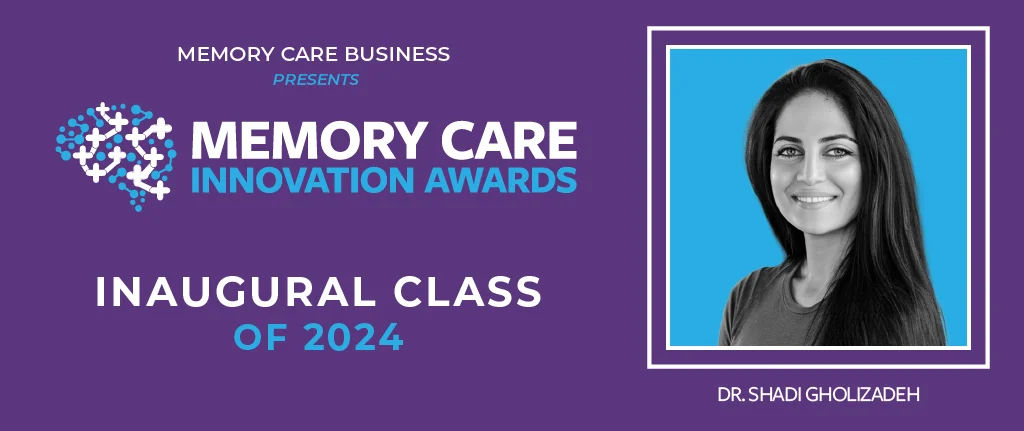The Memory Care Innovation program is designed to recognize passionate and innovative industry members who are shaping the future of cognitive care across behavioral health, home health and home care, hospice and palliative care, senior housing, and skilled nursing. To see this year’s inaugural Memory Care Innovation Award winners, visit https://innovation.memorycarebusiness.com/.
Dr. Shadi Gholizadeh, the head of quality and clinical development at TheKey, has been named a 2024 Memory Care Innovation Award Winner.
To become a Memory Care Innovation Award winner, an individual is nominated by their peers. The candidate must be a high-performing employee who knows how to put vision into action, and serve as an advocate for those living with memory-related disorders and the committed professionals who ensure their well-being.
Gholizadeh sat down with Home Health Care News to talk about the “limitless” opportunities that lie in the future of memory care.
What drew you to working in memory care?
For me, it has always been the blend of scientific challenge and the opportunity to make a tangible difference in the lives of people living with cognitive changes and their families.
I was very interested in helping adults who want to plan for their own long-term aging, or support their parents in planning, and in considering how the goals, wishes and preferences could be honored alongside any cognitive changes that happen.
What’s your biggest lesson learned since starting to work in memory care?
The biggest lesson I have learned is the importance of tailored, holistic, person-centered care that involves the whole family. I have learned about the importance of providing evidence-based education to people living with dementia and their families and professional care partners about what excellent care and a strong quality of life can look like so that they are empowered to advocate for that.
Each person’s experience, cherished identities, values, goals, family and social structure, dynamics, other health comorbidities and resources will be unique. And, thus, require an approach that can both scale and be highly tailored for that person and family.
If you could change one thing with an eye toward the future of memory care, what would it be?
I would like to find ways to integrate more adaptive technologies that can provide personalized care at scale.
We need innovative solutions that can supplement direct care through technology – whether it’s expanded cognitive engagement, more opportunities for social connection, education and training, monitoring key health and psychosocial metrics, or understanding what a flexible and optimal daily routine may look like. To do this successfully, bringing the right multidisciplinary stakeholders and people living with cognitive changes and their families to the table is necessary to design with an eye on accessibility, usefulness and impact.
What is the biggest obstacle to being innovative in memory care, and how do you try to overcome that obstacle?
One of the biggest obstacles to innovation in memory care is the challenge of aligning new approaches and technologies within existing frameworks and practices. This is why we value and invest in a multidisciplinary scientific advisory board with rigor across different disciplines but who all have a strong passion for more holistic and person-centered care.
We advocate for continuous education and collaboration among people living with dementia, health care providers, professional and family caregivers/care partners, and researchers. By creating an environment and culture where shared knowledge and innovation are celebrated, we can collectively challenge ourselves to expect more out of memory care.
In a word, how would you describe the future of memory care?
Limitless.
The future of memory care holds immense promise, as interdisciplinary approaches and technology are interfacing more and more to create more effective, timely, compassionate and personalized care strategies. We need to ensure we are including people living with dementia and those who care with them in these rooms so that solutions are most relevant and impactful.
What quality must all Memory Care Innovation Award winners possess?
Curiosity is essential. This quality fuels a relentless pursuit of knowledge and drive to improve care practices, leading to the types of innovations that can make a real impact on the lives of those living with cognitive changes, their families and the professionals dedicated to providing support.



